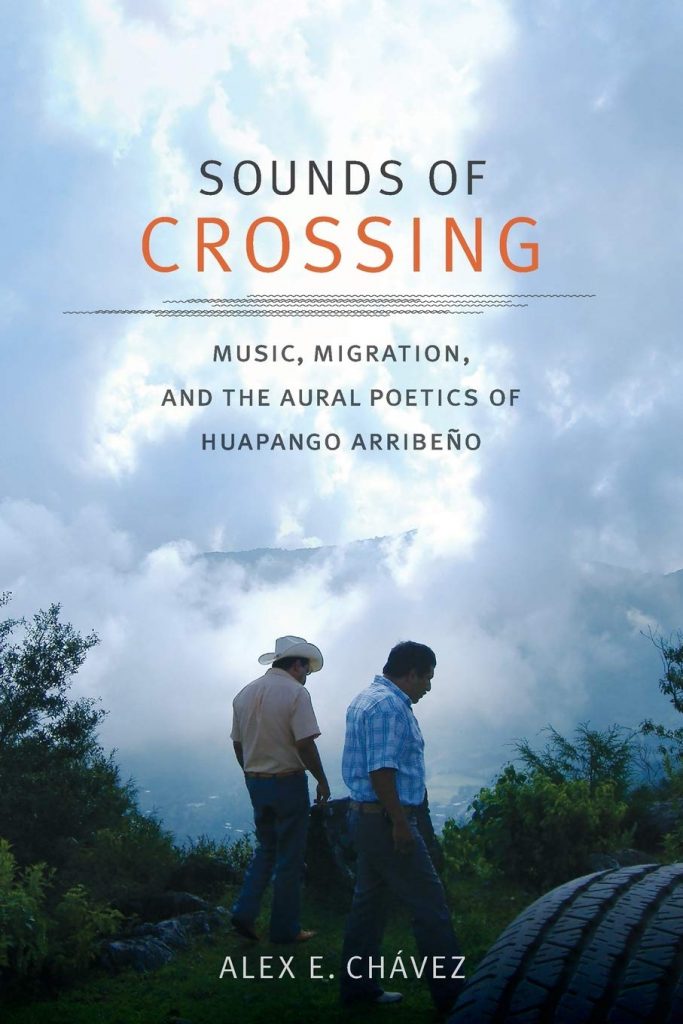
Several decades ago, Clifford Geertz reminded us that “the essential vocation of interpretive anthropology is not to answer our deepest questions, but to make available to us answers that others, guarding other sheep in other valleys, have given, and thus to include them in the consultable record of what man has said.”[i] In Sounds of Crossing, Alex E. Chávez makes available to us the answers, concerns, and aspirations of a Mexican migrant community. Chávez makes sure, from the onset, that the reader knows that this is not only an ethnographic exercise resulting from years of fieldwork but rather a personal account of undeniable truths (1), a story not fixed in the past but of lived experiences, day to day, and with real musical and physical implications. The book is about people, about music, and about their crossings of political, social, and musical boundaries, socially and historically constructed. It is, in particular, an exploration of huapango arribeño, a musical genre originally from the states of Guanajuato, Querétaro, and San Luis Potosí in Mexico, and mostly absent from current literature. The book expands and engages with previous explorations of Mexican music, Mexican migrants and Mexican American lives, and participates in a dialogue with preeminent ethnographers.[ii] Following in their steps, Chávez traces the music from its rural origins to the many social, national, and transnational re-interpretations of the music, leaving aside intrinsic localized rationales while exploring the constant reconfiguration of American belonging against the grain of current issues of “mass expulsions, loudly voiced xenophobia, and violence with regard to Latino/a communities across the continental United States” (4). In doing so, he argues that: “transnational music making in everyday Mexican migrant life specifically positions itself at the tensive center of this volatile discursive terrain, where certain sounds–as expressive indices of a supposedly deficient culture metonymically linked to the corrosion of America–both symbolically and materially claim a place in the space of the US nation-state, refiguring the borders of citizenship and alienage through embodied and agentive forms of cultural expression” (5).
The book provides a long overdue discussion about what it means to hear Mexico. Drawing from Josh Kun’s ideas in Audiotopia (2005), Chávez revisits the historical construction of Mexicanness through internal nation-building projects in Mexico, mass media, and the eventual “normalization” of archetypes firmly assimilated within the Mexican society at large and abroad. This discussion frames huapango arribeño and its singular position while “it participates in a U.S. racial markedness structure as a sonic index for a derided Mexican otherness…it is also the soundtrack to a powerful antimodernist Mexican national sentiment” (42). Along the same line of thought, the book revisits current academic scholarship on post national identities and transnational approaches, and, through the exploration of real people crossing boundaries, puts into question long-standing theoretical approaches and cultural perceptions of Mexican music within the academic discourses (297). In doing so, it contributes to a much-needed process of nuancing. At the center of the music exploration are the décimas, poetic improvised verses, which the author explores wonderfully and manages to weave intertextuality, semiosis, social theory, and poetry in a compelling narrative that allows the reader to inhabit the time and space of these performances. Each exploration of the lyrics is the culmination of a strong historical and theoretical background which in turn, conveys to the reader the musical contours and the emotion infused in these performances. The descriptions of the topadas (challenges among troubadours) and the lyrics presented in Spanish allow the reader to witness the poetic…
Sounds of Crossing, Music, Migration, and the Aural Poetics of Huapango Arribeño, by Alex E. Chávez